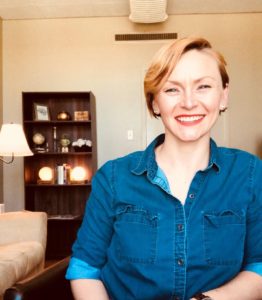I have a colleague with whom I consult regularly. One of the nice things about this trusting relationship is that I have the space to discuss dreams and desires, as well as fear and what might be standing in my way. It’s so necessary for me to be able to see my goals and barriers to success through fresh eyes. I struggle with imposter syndrome at least weekly. It takes a lot for us to stay current and fresh in private practice.
Keeping our Skills Fresh
We know what we’re good at, and we probably know when a session has gone well, but what are we doing to keep our skills fresh? More importantly, from a professional advocacy standpoint, what are we doing to stay relevant and perhaps even give back to the counseling profession while marketing, building our brand, or becoming expert in an area that there is need? There’s a great infographic that outlines getting your practice started and it really helps put the pieces together on what to do to get full. What if you’ve got other passions, however? Like presentations, supervision, or a specific treatment modality that you think other helping professionals could benefit from. I may not be ready to go into consulting, but continuing education is a passion of mine.
Staying Relevant to Combat Therapeutic Drift
- What are you curious about?
- What keeps coming up for you that you wish you knew more about?
- Would it individually help you become a better therapist?
Then the likelihood is high that it would help others, as well. I recently took a continuing education module on clinical supervision. And it got me thinking about how much oversight new clinical supervisors in our field need (of which I am one). And whether we are actually getting the support that we require. Rather than keep that question to myself, and just make sure I’m taking care of my own skill set, I started thinking that there must be other new supervisors in my area who probably have some of the same concerns. So I’ll be presenting to some colleagues about my findings, and my hopes for my own professional development. I also think about it this as an opportunity to product test something that I may be able to take to other agencies/practices or conferences in order to market myself and my practice.
Becoming an Expert
If you’ve got an area that you’re interested in, believe me, someone needs to hear it. We often stay out of the spotlight because we think “I’m in this profession to help others.” Of course! And we can widen the scope of our service and support while also supporting our own financial and professional goals. If you don’t think you have any original ideas, I’d encourage you to ask someone that you trust what they perceive you to be very skillful at doing, or what are your strengths. Becoming an expert in a certain niche isn’t rocket science, I think what serves us better is taking small steps, and continuing to dedicate ourselves to growing and deepening our practices. You’ve got something that the world needs.
 Elizabeth Pace is a therapist and clinical supervisor in private practice in New Orleans, Louisiana. What she loves the most about private practice is supporting others as they question their old ideas about “doing it right” and start to cultivate a newer awareness about the kind of life they want to fearlessly pursue. Another passion is advocating for and advancing the counseling field through presentations on professional development, financial literacy, and coaching others towards the personal and professional goals that bring them joy, excitement, and financial stability!
Elizabeth Pace is a therapist and clinical supervisor in private practice in New Orleans, Louisiana. What she loves the most about private practice is supporting others as they question their old ideas about “doing it right” and start to cultivate a newer awareness about the kind of life they want to fearlessly pursue. Another passion is advocating for and advancing the counseling field through presentations on professional development, financial literacy, and coaching others towards the personal and professional goals that bring them joy, excitement, and financial stability!
You can visit Elizabeth’s website here!

